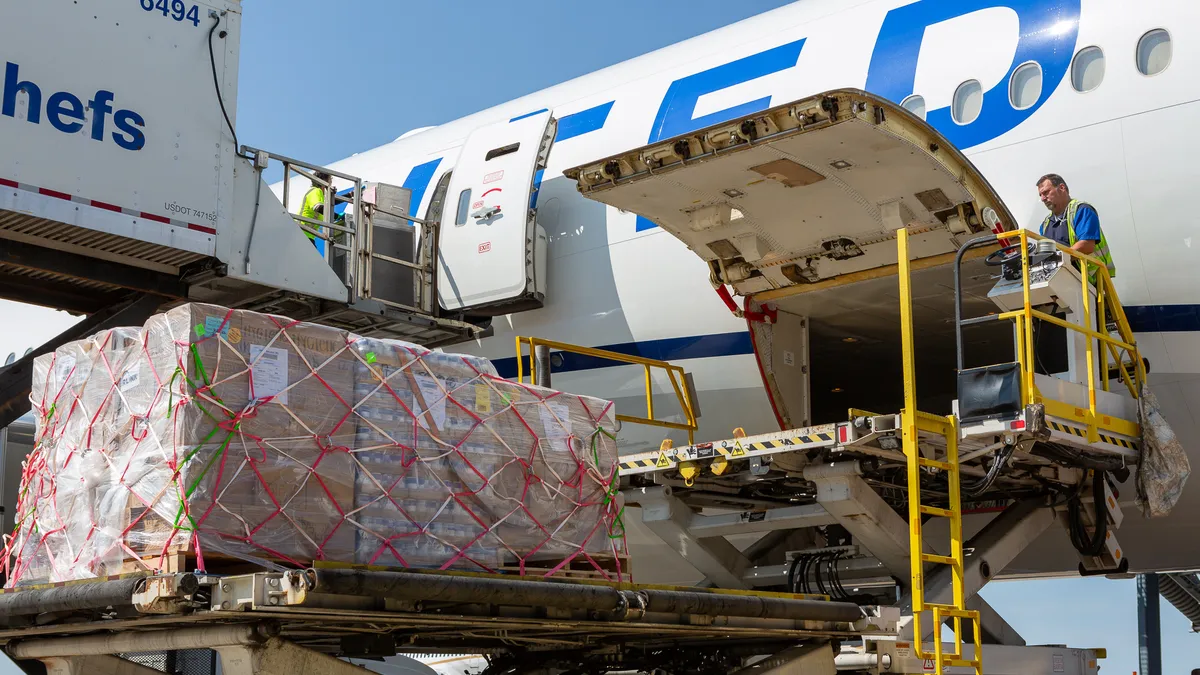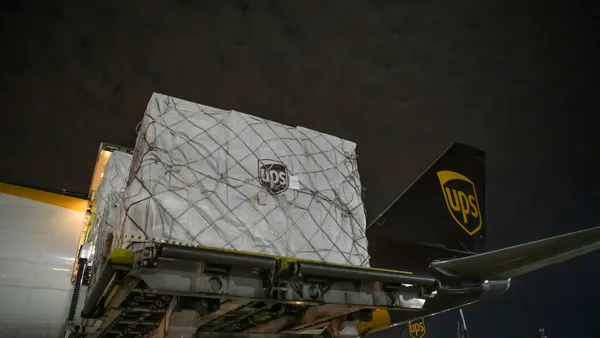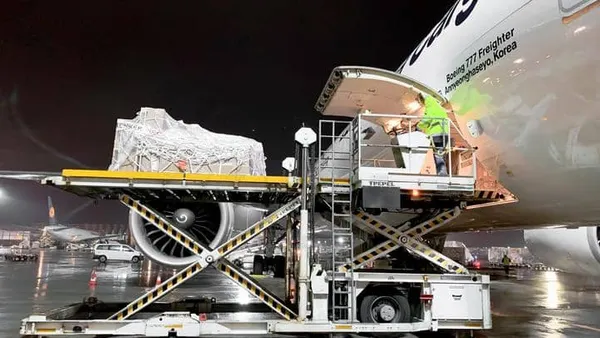Dive Brief:
- Alibaba is integrating freight procurement into its business-to-business e-commerce platform, the company announced Tuesday. Alibaba Freight had been in a pilot phase for a couple of months and will now be available to buyers on certain trade routes.
- Alibaba Freight will be powered by the Freightos online freight marketplace and allow shippers to "compare, book, manage and track ocean and air freight in real-time online," the company said in a press release.
- Shippers using Alibaba's platform are often moving containers and pallets. The new service will allow them to compare prices for air and ocean freight within the e-commerce platform, the company said.
Dive Insight:
Alibaba Freight debuts at a time when the world of freight procurement has become increasingly digitized. The announcement comes more than a year after Amazon launched its brokerage site.
Alibaba Freight is marketing itself as a way for shippers already using the e-commerce platform to compare rates, arrange bulk shipments and track them in real time.
"This is a substantial step forward for how freight will be procured, being integrated into the largest B2B marketplace," John Caplan, the president of North America and Europe at Alibaba.com, said during a press conference Monday.
Shippers will be able to select either less than container or full container loads for ocean cargo. Ocean and airfreight are offered on cargo moving from China to Australia, Germany, Great Britain and the United States. Ocean is the only option for shipments leaving Hong Kong, Taiwan and Vietnam.
| Origin | Ships to | Freight option |
|---|---|---|
| China | Ocean, Air | |
| Taiwan | United States, Great Britain, Canada | Ocean |
| Hong Kong | United States, Great Britain, Canada | Ocean |
| Vietnam | Unites States, Great Britain | Ocean |
SOURCE: ship.alibaba.com
"Our goal was to make it more transparent, more upfront and more tied to the natural activity of sourcing," Jamin Dick, the head of supply chain for North American B2B at Alibaba.com, told Supply Chain Dive in an interview. Prior to Alibaba Freight, shippers would have likely worked through a freight forwarder or they would have left transportation up to the seller in China, he said.
Connecting the process of freight procurement with product sourcing means trade information can be shared easily on the platform, which could cut down on documentation errors that arise in more manual processes.
The shipper is able to choose the carrier, the type of freight and the ports where their cargo will travel, Caplan said.

Users first fill out the information on the shipment, specifying whether it is a pallet or a container, and list the dimensions. Then the platform asks where the shipment will be picked up and delivered, providing three options: port, factory/warehouse or building without a loading dock. The platform then gives the user the option to add customs clearances, customs bonds and insurance.
Users can view shipment options filtered by the cheapest, quickest and greenest choices.
The company also announced Alibaba Payment Terms to help companies finance cross-boarder trade, giving buyers 60 days to pay for goods after they're shipped.













